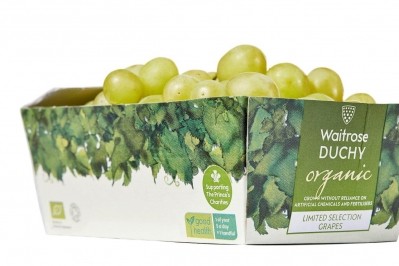Food and drink firms among 2019 worst plastic polluters

The report, entitled Branded Volume II: Identifying the World’s Top Corporate Plastic Polluters, was carried out by the Break Free From Plastic movement in September, and named Nestlé, PepsiCo and Coca-Cola as the most culpable for 2019.
Unilever and Mondelēz International made the top 10, alongside Mars, Colgate-Palmolive, Phillip Morris and Perfetti Van Melle.
The project encompassed 484 clean-up operations in more than 50 countries and across six continents.
The organisation is urging large corporations to ramp up their efforts to “urgently reduce their production of single-use plastic and find innovative solutions focused on alternative delivery systems that do not create pollution”.
‘False solutions’
Abigail Aguilar, Greenpeace Southeast Asia plastic campaign coordinator, accused the firms of relying on “false solutions” such as replacing plastic with paper or bioplastics.
“These strategies largely protect the outdated throwaway business model that caused the plastic pollution crisis and will do nothing to prevent these brands from being named the top polluters again in the future,” she added.
But Nestlé and PepsiCo defended their work, highlighting the scale of the task ahead for many businesses.
“This is another important piece of research on the global scourge of plastic litter and, while the results are not a surprise to us, they are not at all nice to see,” a spokeswoman for Nestlé said.
Working hard
“It is completely unacceptable for packaging to end up as litter in the environment and we are working hard to make all of our packaging either recyclable or reusable by 2025.
“We are rolling out the subscription home delivery service, LOOP, in countries where it is available. Changes will take time, but we will work quickly with our suppliers, with NGOs and with governments around the world to find the solutions that are needed to make reports like this a thing of the past.”
Nestlé has also recently refuted allegations from an environmental group that illegally-sourced palm oil had made its way into the supply chains of major consumer brands.
A PepsiCo spokeswoman added: “Changing the way society makes, uses, and disposes of packaging is a complex challenge and we’re playing our part. We want to help build a system where plastic packaging never becomes waste.
“We’re committed to reducing 35% of virgin plastic content across our beverage portfolio and making all our packaging 100% recyclable, compostable or biodegradable by 2025.”
Unilever, Mondelēz International and Coca-Cola have so far declined to comment.
















